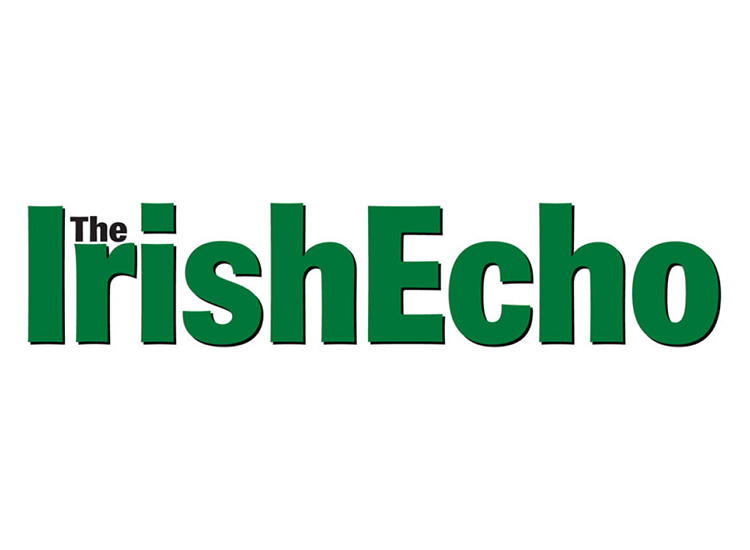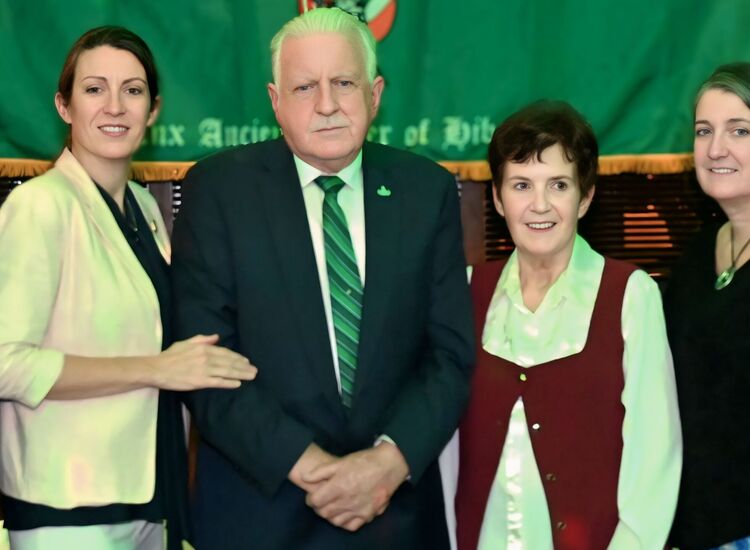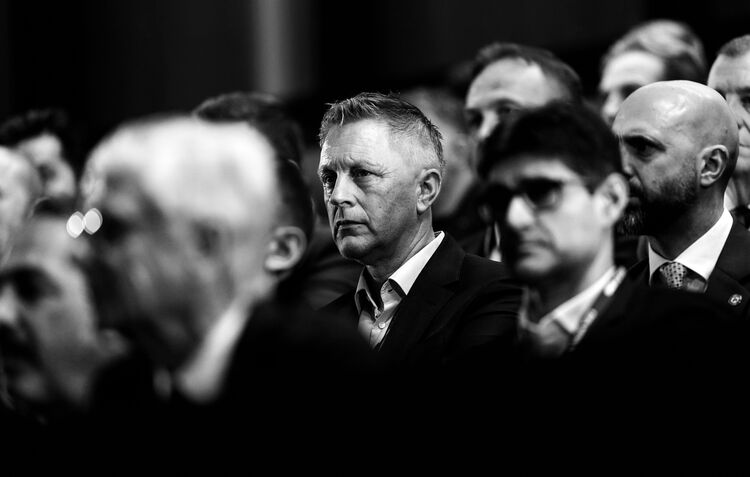Rodney Dickson and Bùi Phương Ngọc at the Noguchi Museum in Long Island City, Queens.
PHOTOS BY PETER MCDERMOTT
By Peter McDermott
The Noguchi Museum isn’t near a subway stop, which means in New York terms it’s out of the way. That’s part of its charm. It didn’t seem that way on the first Saturday of the year though, with the city covered in snow. But a cab was procured eventually and the journey made. It proved to be worth the effort, of course.
Sculptor, architect, set designer, park builder and furniture designer Isamu Noguchi opened his “garden museum” in the mid-1980s. Even with the snow, the garden was part of the Saturday afternoon experience, as there is no wall separating it and an inner lobby. Still, walking around outside or sitting on a bench would have to wait. And Rodney Dickson, a regular, will be back.
“I like it because it is a contemplative space,” said Dickson, an abstract expressionist painter from Newtownards, Co. Down. “It’s quiet and peaceful and a beautiful refuge from the activity of the city.
“I think Ngọc likes it, too,” he said, referring to a young architect who is doing a 5-month internship in New York as a break from her studies in Italy.
“The Whitney is too busy. MOMA is too busy,” Bùi Phương Ngọc said. “This must really be one of the quietest places in New York.”
She’s become familiar with Noguchi’s life and work since coming to New York. “He’s inspirational,” said Bùi, a native of Hanoi, Vietnam.
In 1961, the Los Angeles-born Noguchi moved to Vernon Boulevard, Long Island City, Queens, just across the river from Roosevelt Island and Manhattan’s Upper East Side. He later acquired an old factory on the other side of the street and the site of a former gas station beside it and then built his museum. He died in December 1988 at age 84.
“It’s really interesting to see the art where the artist worked,” Bùi said.
Her specialty is preservation, about which Italian, Chinese, Japanese and other cultures have different ideas. “But this is preservation, too,” she said.
Bùi also liked the design of the windows to the outside world and the fact that its 13 galleries or “areas” are one big gallery.
She pointed to a chair by Noguchi. “Furniture like that can really define a room,” she said.
Noguchi spent the years from age 4 through 13 in his father Yone Noguchi’s Japan and he continued to be a world-traveler throughout his life, particularly to Asia. He was an Ulsterman, also, in that his maternal grandfather Thomas Gilmour emigrated from Coleraine to Brooklyn. Leonie Gilmour and her son Sam Gilmour, as he was known before adulthood, were proud of those Irish connections. But as a young man, it was his poet father’s letter of introduction that led the young Isamu Noguchi to the door of W.B. Yeats.
Since Dickson’s 1997 move to New York from Liverpool, he has made more than 20 journeys to Asia. “I’ve been to Vietnam at least 10 times,” he said. However, there have been no trips since the death of his wife Juliet last March after a four-month illness.
The couple settled in Greenpoint in Brooklyn, but the artist had an earlier foray to the city when he was a 1992 participant in the PS 1 International Program (which was discontinued a decade ago).
At the time, Northern Ireland and the Republic each owned an apartment in the same building in Sunnyside, he told Shane Harrington, a Limerick-born musician, artist and Noguchi Museum employee, who has been in New York for five years. It was nice for two Irish artists to live rent-free for a year, but that was also a dozen years before gentrification. He could recall two street killings in the neighborhood during his time there.
“It’s a different city now,” Dickson said.
But not so much, it seems, at the little quiet section of Vernon Boulevard where Noguchi’s life, work and spirit are forever preserved.
"Self-Interned, 1942: Noguchi in Poston War Relocation Center” opens today at the Noguchi Museum, 9-01 33rd Road (at Vernon Boulevard), Long Island City, New York 11106, and will continue for the rest of 2017. The museum is open every Wednesday through Sunday. For more information about programs, call 718.204.7088 or go to www.noguchi.org.










